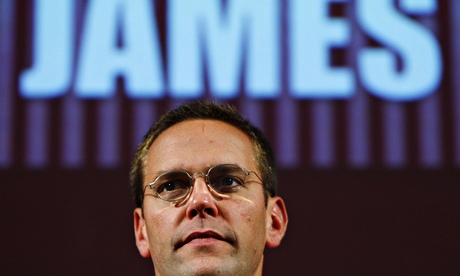http://www.cjr.org/feature/build_the_wall_1.php?page=all
Section 1 of the article gives David Simon's opinion that all newspapers should act cohesively, possibly even merging into one organisation and that they should then all put up pay walls for all of their content so that people do not simply go elsewhere to get their news for free. This may revitalise the print form of news as people can no longer simply gain news for free, and he states that those who do post news for free should be sued for copyright.
Section 2 states that if online subscriptions and paywalls only offered local news there would be no market for it, but if it also included international and world news that could not be accessed elsewhere there will be. He also states that again that all newspapers must do this together and at the same time, as if one does put up a pay wall and another doesn't, the one with the pay wall will suffer massively and the other profit from extra readers due to the free content. He also questions whether this would work, is society willing to pay for something they see as rightly free? However states that the risks are minimal compare to the state of current print news. He states that this idea would not fail as the internet has given the news a larger audience that ever before with more people now reading the news online due to its availability online, if there was a paywall those who want the news can buy it online the same way they would a newspaper.
He then goes on to compare the situation to the evolution of television. Initially the idea of paying for television would have seemed farcical yet now almost everyone pays monthly fees for cable television. He states that the reason for subscription channels and the demand for it is because if you pay more, you get more channels and the newspaper industry should adopt a similar approach. He also states the lack of money gained from free new media news has led to a massive decline in the quality of journalism, compared to the paid journalists who published in print newspapers previously.
Section 3 Simons speaks about how the issue started, in that newspapers initially set up their sites and gave news for free online in the vision that people would read their content online and then want to but the newspaper. He states that newspapers should offer online content cheaper to the cost it would take to have newspapers delivered to their doorstep, and if it can not be delivered then the online price should increase. He states that although newspapers may lose readers, the new format would still be profitable due to the amount of money made through subscriptions.
In section 4 Simons gives the three possible outcomes of his proposed format
1 - It is a success and the newspaper industry begins to improve again with newspapers turning to a paywall, leading to them investing more money into their print format and as a result covering more local and even neighbourhood news.
2- Many regional newspapers go bust leaving a vacuum taken up by new regional online paywall newspapers that generate a healthy income and uses its profit to pay for high quality local journalism
3 - The format fails completely and only the major institutions are able to survive on their subscriptions and all regional journalism and papers go bust due to the lack of audience and subscribers.
In my opinion I agree that if all newspapers did put up a paywall for their news it would slowly revitalise the print format and perhaps increase the standard of journalism. However I agree with Simon's view that this can only work if carried out by all newspapers cohesively, as if one single newspaper does not follow, people will simply look at their content because it is free. If everyone did it people would not have a choice but to pay the subscription fees as news is essential to everyone, so subscriptions are guaranteed. However where I disagree is his view that local journalism will thrive under this format and that people will pay for local newspaper subscriptions. Most people are only going to only subscribe to the major institutions, the Guardian, The Independent, etc. Unless these websites begin to also provide local journalism and stories, which is highly unlikely and almost impossible unless all major news institutions merged into one, local newspapers online will not thrive. Using myself as an example, I would only subscribe to a major institution such as the Guardian for my news and wouldn't bother subscribing to the Ealing Gazette as I wouldn't see it as necessary compare to national and world news, and I think others would be the same. Simon's does also not take into account the varying economic power in different areas and regions, rich areas may be able to afford to pay for a local newspaper subscription, whereas poorer areas not able to afford it and as a result their regional or local online newspaper closing down. Is it fair to have rich areas access to local news but not others? Would this not mean that journalism in rich areas is of far more quality than a journalist writing for a poorer local newspaper? I think their are flaws within the system in that people are likely to only subscribe to major institutions however I do think if carried out cohesively by all newspapers it would certainly help bring back the print media as a popular source of news.
Comments
I understand the frustration, and there is a lot in this piece, but subscription is not the way to go. What the Times and the Post report is not inherently valuable, value is relative and subjective. News is free and a portion of the times is simply news. Journalism - Business, Arts, Books, Movies, Travel, Sports, etc, - is not free, but its value is hard to pinpoint making a site wide subscription fallacious.
Lionel Barber, Editor, FT, indicated at a media even last night that the FT is seeing growing revenue from frequency model pricing, meaning readers get a certain number of articles free and then must begin to pay. This strategy is not as granular as what many people espousing micropayments are pushing for, but its got its head in the right place.
Your argument that for example, The Baltimore Sun push readers online by charging more for the physical newspaper and its delivery, either ignores or misses that strength of the internet - profits from fragmentation. I can go to iTunes and buy a variety of genres of music in the smallest possible form - a song - and get a discount for buying in bulk - an album. Journalism can work in the same way. I can buy one technology article or I can buy the whole section for the day or the week at a discount.
Now is not the time for ultimatums and traditional thinking. There is a solution that makes people pay, we both agree that needs to happen. Let's do it in a way that will make people really love and appreciate journalism again instead of bullying them into subscriptions and turning off a new generation of Americans to the pleasure of reading the Times Sunday Arts section.
This comment agrees with the idea that newspapers need to set up paywalls however states that the way in which newspapers should make users pay should be a way in which they are not forced to subscribe, an example being where they can read a number of articles before having to pay.
Most of the folks writing about the paywall issue are assuming that because only 5-10 percent of the current online readership will sign up for web content, it will be a failure. Actually, the folks behind the paywall effort don't care if anyone signs up for online content. The entire point is to push people into print subscriptions. It could be that some newspapers or groups won't even offer an online-only option. It will just be a free giveaway with print.
This comment neither agrees or disagrees with the pay wall but thinks that it is simply a strategy used by newspapers to push people towards the print format.
If news were not free, there would be enough people willing to pay for it to cover the cost of producing it. But suppose the New York Times suddenly started charging for online access; althought it is a great newspaper, I probably wouldn't pay for it. There are just too many free alternatives that are almost as good. Even if (for example) no other online news source were as good as the Times, the remaining news sources will collectively fill the gap.
This person is against the paywall as he claims that he and most people will not pay for he news and therefore the paywall will fail.

